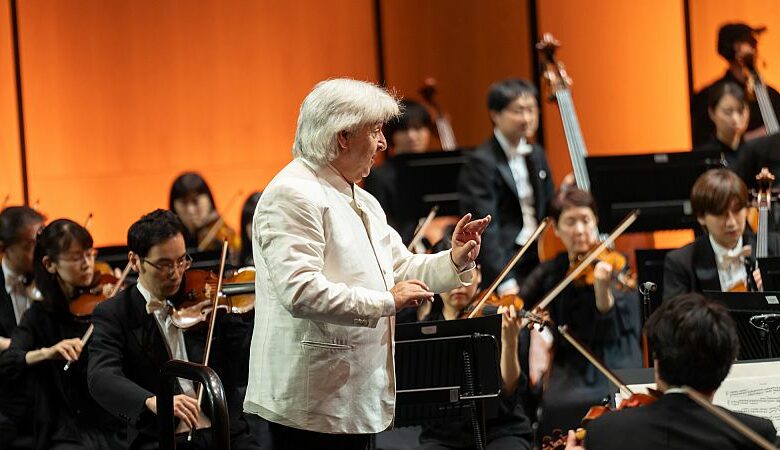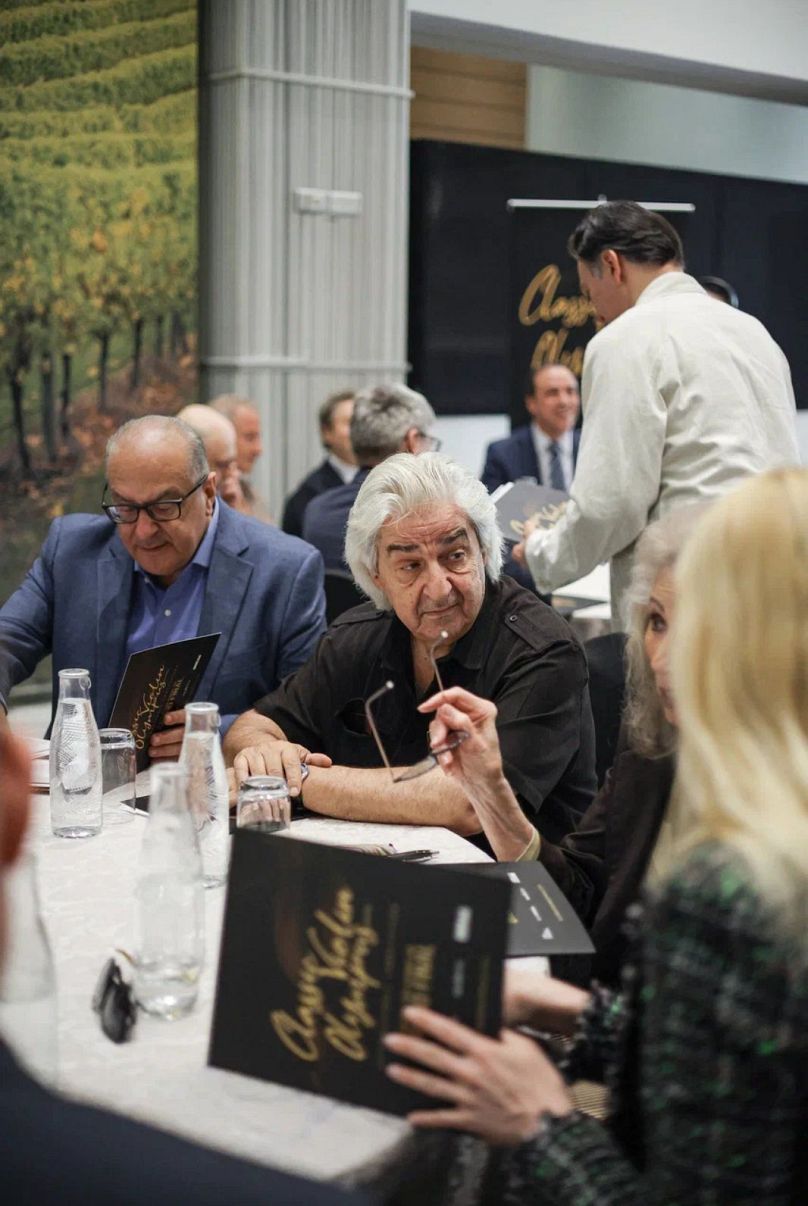Each renowned violinist secured their spot in the global contest by excelling in initial stages held in major cities including Rome, London, New York, Tokyo, and Dubai.
Currently, the last phase has commenced, taking place between April 22nd and April 28th, featuring a combined prize money of €310,000. This presents an opportunity for participants to elevate their profiles on the international scene.
Monitoring the competition at Zabeel Theatre is
Classic Violin Olympus
Chairman and Artistic Director Pavel Vernikov, who is among a distinguished group of 23 esteemed jurors including prominent conductors, composers, and musicians.
“Winning this competition is a major milestone,” says Vernikov. “It opens doors, brings in concert engagements, media exposure, professional contacts, and of course, awards significant prize money.
More crucially, it fosters self-assurance. The victor will realize that they possess uniquely valuable contributions. Additionally, it instills the duty to keep developing, staying modest, and consistently performing music with honesty.
What criteria are the judges using?
Every violinist will play alongside the Madrid Philharmonic Orchestra and the Armenian State Symphony Orchestra, perform a composition by a modern-day composer, and take part in an interview with the panel of judges, along with several additional activities.
For Vernikov, a celebrated Ukrainian violinist and professor at Konservatorium Wien University in Vienna and the Haute Ecole de Musique de Lausanne in Switzerland, talent is just the beginning.
Naturally, technique plays a crucial role, yet alone it isn’t sufficient without artistry,” he states. “The key components include sound quality, musical expression, personal flair, and undoubtedly, command over techniques.
“A violinist must have a beautiful, personal sound and a deep understanding of the music they are performing. I also value creativity and risk-taking, musicians who aren’t afraid to say something with their playing.”
Each finalist will receive €10,000, with the overall winner scooping €200,000.
Up until now, the competitors have done well; however, Vernikov maintains that all remains uncertain.
He expresses his desire for hearing a distinct personality within the music,” she explains. “This can manifest as a nuanced inflection, an unanticipated change in pace, or perhaps just a pause that feels almost palpable. Such elements linger vividly even after the final notes have faded.
Colleague juror Marios Papadopoulos, a Cypriot-born British pianist and conductor, echoes this sentiment, stressing that originality is essential.
“I believe that many of the compositions we will listen to today have been executed at the pinnacle of skill by countless violinists throughout history,” he states.
The question is whether one can infuse a fresh perspective and interpretation into the score without relying on cheap tricks to be noticed. I’m searching for someone who can enchant and emotionally resonate with me.
The Human Touch: Humans Versus AI
At a time when
artificial intelligence
Can duplicate notes with perfect accuracy; however, the contest serves as a poignant reminder that genuine musical enchantment remains rooted in the human element.
“Artificial intelligence is precisely what you think—it’s synthetic, produced by machines or computers,” states Irish jury member Eleanor Hope, who also leads Interclassica Music Management agency.
Several years back, I participated in music therapy experiments where we found that using analog recordings positively impacted patients, but digital music showed no such benefits. The essence of humanity can’t be replicated by technology.
In Vernikov’s opinion, AI can be helpful for analysis and education, but can never replace the emotion that live concerts evoke for both musicians and audiences.
“A computer can play every note perfectly, but it cannot make you cry or feel joy,” he says. “Competitions like Classic Violin Olympus remind us of the human element in music, of the vulnerability, the passion and the connection between performer and audience. These things are ineffable; they can never be replicated by any algorithm.”
Uniting people and cultures
Just as AI falls short in conveying true human emotion, it also lacks the power to foster cross-cultural connection in the way that only human artistry can.
Events such as these unite individuals,” states Vernikov. “Artists from various nations and cultural backgrounds share one platform and connect via their musical performances.
“This is very powerful in itself, but it also promotes cultural exchange and shows that music is a universal language.”
The competition also provides a platform for young talent from across the globe to gain exposure, as well as bolstering
Dubai’s burgeoning arts scene
.
“If a high-level music competition can generate interest, attention and excitement then that is surely of benefit to the cultural landscape,” says Hope.
“New careers are generated, young musicians are stimulated, audiences are fascinated, concert opportunities are created for the artists and audiences have new attractions to explore.”
As the curtain prepares to fall on this inaugural edition, Vernikov warns that although competitions can open doors, it is what follows that truly defines an artist’s path.
“Remember that competitions are just one part of a musician’s journey,” he says. “The real goal is to become a complete artist, which is a never-ending journey, but a very satisfying one.”

